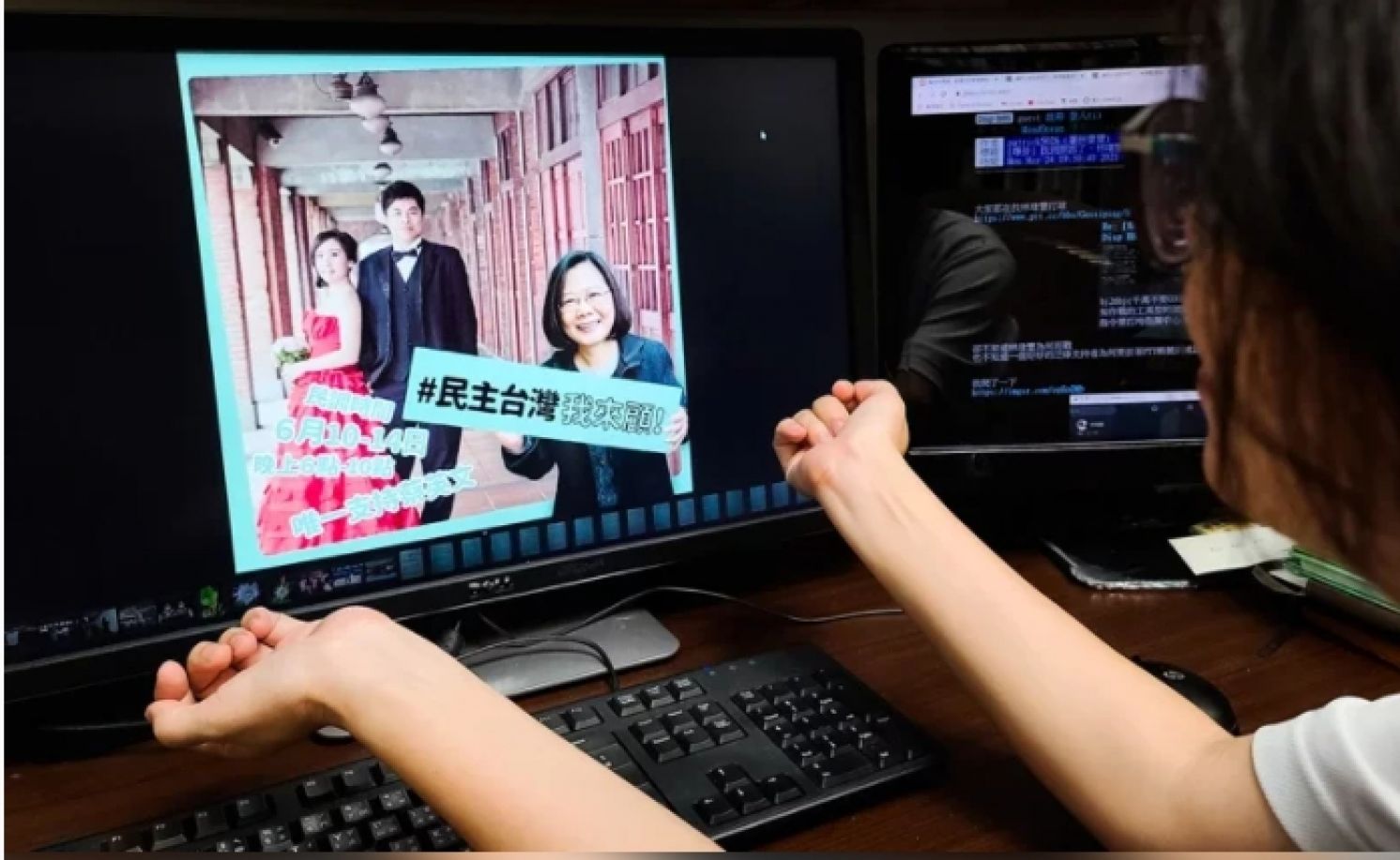
China's Cognitive Warfare a Self-Staged Act? Prosecution to Promptly Investigate
China Times, May 26, 2021
The pro-government writer Lin Wei-feng was caught feigning to be pro-China, posting messages on PTT, a popular online bulletin board system, mocking Taiwan's epidemic prevention policy, and attacking the epidemic prevention platform created by the Ministry of Health and Welfare, thereby creating a fake impression that China is waging a cognitive war against Taiwan. The Taiwan High Prosecutors Office, Ministry of Justice (MOJ), assigned the case to the New Taipei City Prosecutor’s Office, which will direct relevant agencies to carry out investigation promptly and strictly. If the crime of spreading false information is established, then Lin may be sentenced to up to three years in prison.
According to the police investigation, about four or five accounts were used to publish articles attacking the "Disease Butler" platform on the popular “PTT Gossiping” board, Lin was the first to collect these articles and post messages on Facebook claiming that was China’s "cognitive war" in an attempt to influence public opinion against the mainland. Netizens launched a cyber hunt and found that Lin's Facebook and PTT accounts were both "bj26bj", and his clandestine operation was thus revealed.
Confession and Apologies After Account Was Hunted
After Lin's secret modus operandi was exposed by the netizens, it sparked an uproar. On May 24, he confessed and apologized, because he "thought it was fun posting "reversed message." However, when the opposition party and netizens compared the timing of the recent talks of Lin and the Democratic Progressive Party (DPP) administration, they only found many suspicious coincidences. Moreover, Lin’s wife, Yang Min, is the deputy director of the DPP’s social media center. Netizens questioned "Who in the world is the big boss behind the web framing scenes?"
On May 13, when the intensifying coronavirus (COVID-19) pandemic was coupled with a power failure, the public focused their attention on the Taiwan Power Company’s management negligence, but Deputy Secretary-General Lin Fei-fan of the DPP issued a document alerting people to Mainland China’s cognitive warfare. President Tsai Ing-wen also convened a high-level national security meeting on the same day to launch a project to investigate fake news.
Government, DPP in Unison, Cautioning Against Cognitive Warfare
Pro-DPP media and foreign media on May 18 quoted a "national security official" as saying that after the epidemic intensified in Taiwan and false information went viral, and the national security authority grasped its high linkage to China’s cognitive war against Taiwan. As soon as the news came out, it immediately attracted follow-up reports from all the pro-government media.
On May 19, when Taiwan’s epidemic alert rose to level 3, Lin Fei-fan, Spokesman Luo Ping-cheng of the Executive Yuan, and Deputy Secretary-General Li Chun-yi of the Office of the President, almost in unison, condemned the mainland for taking advantage of Taiwan’s epidemic situation to launch a cognitive war and instigated the media framing online against Taiwan.
Several days in a row, President Tsai also called on the public to beware of China’s cognitive war against Taiwan. She tasked her fans with working together against China’s cognitive war operations.
After Lin’s duplicity in his internet operations was busted, the opposition Kuomintang (KMT) called into question the existence of the DPP "cockroach den" (or abominable clusters of web vermin) on the internet and bluntly pointed Tsai as the "cockroach queen." Former DPP Legislator Kuo Cheng-liang also angrily criticized the incident on Facebook as "disgraceful" and "cockroach den".
Cheng Chao-shin, deputy chief of the KMT’s Culture and Communications Committee, stated that President Tsai owed the people an explanation. The KMT demanded a thorough investigation by the prosecutors and strict handling of such acts that endangered national security and harmed social unity, and also asked DPP Legislator Wang Ting-yu to explain whether these "acts of cognitive war" are subject to the maximum fine of NT$100 million (about US$350,000) that he previously cited?
DPP: Lin Not Party Employee, Accusations Politically Motivated
Spokeswoman Yen Juo-fang of the DPP said "Netizen surnamed Lin" posted a reminding message on Facebook based on the discovery that someone calling for the deletion of "Disease Butler" on Internet forums, instead of Lin advocating such a call. Yan emphasized that "Netizen Lin" is neither a DPP worker, nor a DPP employee. The KMT's frequent linking private individual’s remarks to the DPP and President Tsai is absurd.
According to reports, Deputy Minister of the Interior Chen Tzong-yan, who serves as deputy commander of the Central Epidemic Command Center, assigned the case to the Criminal Police Bureau on the afternoon of May 24 for investigation. The Bureau of Investigation also received reports from more than 70 netizens including Huang Shi-shiu, petitioner of the referendum on fate of Taiwan’s fourth nuclear power plant. The MOJ issued a press release on the evening of the May 25, demanding that prosecutors make their best effort to identify and severely punish the spreaders of fake news about the pandemic.
From: https://www.chinatimes.com/newspapers/20210526000361-260102